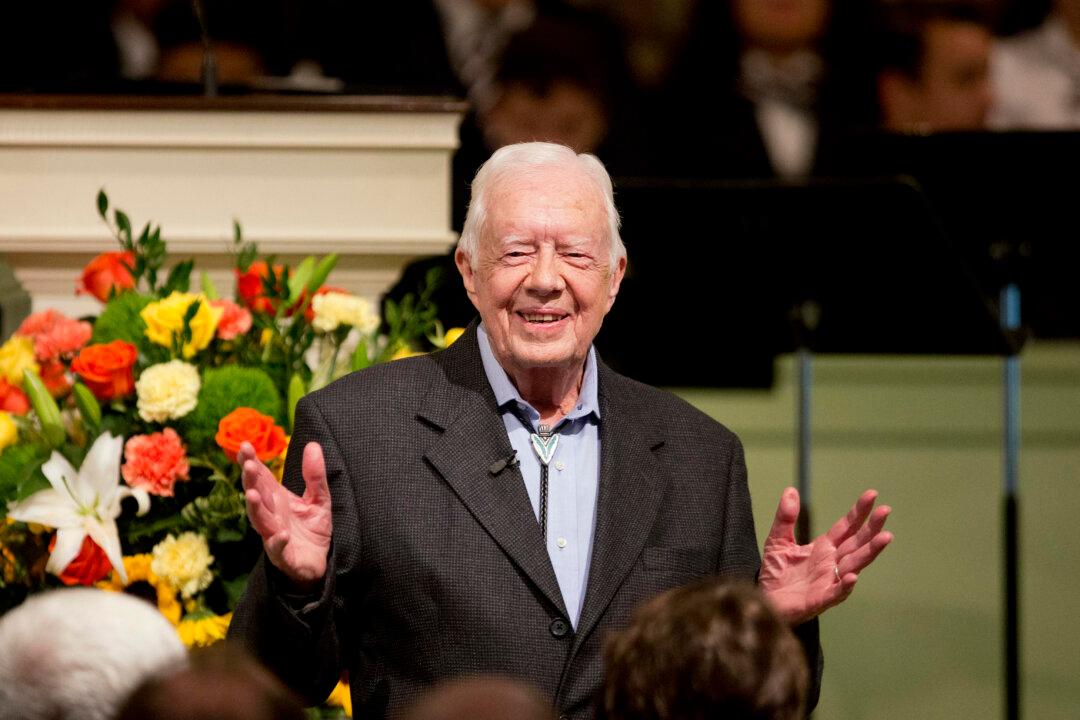Former President Jimmy Carter showed support for President Donald Trump’s recent decision to not take military action against Iran after the Islamic regime shot down a U.S. Navy drone over international waters.
“I agree with President Trump on his decision not to take military action against Iran,” Carter said while teaching Sunday school at Maranatha Baptist Church in his hometown in Georgia on June 23, reported NPR.




